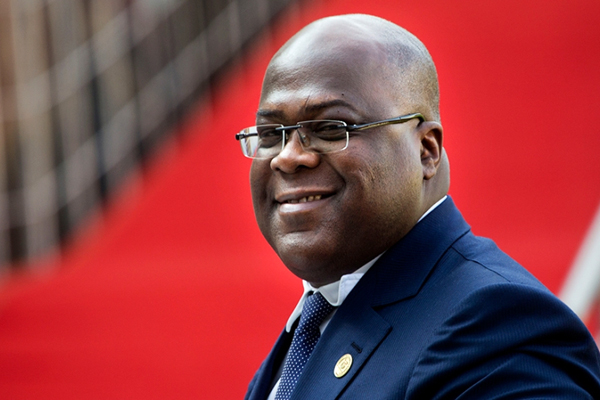Prime
Coups in West Africa, but none in Uganda any day soon

Author: Charles Onyango Obbo. PHOTO/FILE
What you need to know:
- Coups rarely end well, and people with a sense of history should never wish for them.
The African military coup seems to be on the way back, especially in West Africa. The soldiers struck in Mali in 2020 and again in August 2021. When in April Chad strongman Idriss Deby, a former general, got killed on a tour of his troops fighting rebels at the front, the military staged what the Opposition called a “dynastic coup” and installed his son, Gen Mahamat Idriss Déby Itno, as president.
In Guinea in September last year, the tall, dark and imposing Col Mamady Doumbouya did his thing, which seemed to particularly have upset President Yoweri Museveni and Lt Gen Muhoozi Kainerugaba, the commander of the UPDF Land Forces.
Closer home, the Sudan military got tired of the dance over a transitional civilian government following the ouster of Field Marshal Omar Hassan Ahmad al-Bashir in April 2019 in the face of unrelenting street protests.
On October 25, 2021, Gen Abdel Fattah al-Burhan edged out Prime Minister Abdalla Hamdok and took control of government.
Then men in uniform ushered in the New Year with a coup in Burkina Faso. On January 23, they seized power, sending President Roch Kabore into premature retirement. And just last week, they made a play again, this time in Guinea Bissau. They ran out of luck. President Umaro Sissoco Embaló survived – this time.
The East African Community zone, seems safe for now, the most serious recent attempt was in Burundi in 2015, over late president Pierre Nkurunziza’s third term shenanigans, flopped. Traumatised, Nkurunziza didn’t set foot outside Burundi again, until his death in June 2020.
Economic hardship, corruption, repression, and failed democracy, are among the reasons fuelling the return of the coups. But while the coup makers will talk big, their motives are often basic. In Burkina Faso, for example, President Kabore was kicked out days after he refused to approve a contract favoured by the military to do a deal with Russian mercenary Wagner Group to help them fight insurgents.
Some Ugandans, desperate and frustrated by conditions at home, keep saying on social media that the gods are “answering the prayers in the wrong places”, meaning they want a coup here. Coups rarely end well, and people with a sense of history should never wish for them. Furthermore, though, the gods aren’t about to answer their prayers. If there is one thing President Museveni is right about, it is that a coup is unlikely in Uganda today.
Museveni has in the past spoken about how the UPDF is an ideological and politically conscious army, and hence it would never make a coup. Recently he lectured the West Africans some lessons on how to coup-proof themselves.
The West African leaders won’t solve their coup problems by listening to what Museveni says. They will secure themselves, though, by looking to what he does. And it’s not just Uganda. Previously coup-plagued countries in Africa have “stabilised” themselves by following largely the same script.
In the late 1980s, during the horrors of coups in Latin America, it became clear that unless you were in Costa Rica where the military was abolished in 1948, your best bet with the soldiers was to give them a higher strategic purpose; i.e. avoid your military becoming a village army. Things like peacekeeping (AMISOM), and foreign military campaigns (Equatorial Guinea, DR Congo) became popular tools for helping armies see themselves as part of something bigger.
Countries with money developed navies, sending them far out in the waters, and air forces flying reconnaissance forces along their borders looking out for foreign enemies.
Then, as in Uganda, many gave the army a share of the political spoils. Get soldiers out of uniform, appoint them ambassadors abroad, to head parastatals, or give them seats in Parliament.
A militariat with a wider interest in the economy is also unlikely to upset the apple cart. The National Enterprise Corporation (NEC), the commercial arm of the UPDF serves that function. The Auditor-General reports that it is one of the few profitable state-owned enterprises. Bullet factories, military construction units (in Egypt the military are a leading construction industry), those things buy you some peaceful sleep in State House.
And of course, social welfare. Museveni might have got the other fixes but is heavily exposed in the squalid conditions many rank and file soldiers live in. He might want to learn from Egypt, Ghana, or Rwanda next door.
Some people believe that stacking the army with loyalists and family is protection. It doesn’t always work. Col Doumbouya was President Alpha Conde’s right-hand man. In Burkina Faso, Lt Col Paul-Henri Sandaogo Damiba and President Kabore were as thick as thieves. In Equatorial Guinea where the UPDF is protecting long-ruling President Teodoro Obiang, it should be remembered that the fellow overthrew his uncle Francisco Macías Nguema in 1979 and executed him.
Do the above, and more, and hope you buy enough time for constitutional and political maturity.
Mr Onyango-Obbo is a journalist, writer and curator of the “Wall of Great Africans”. Twitter@cobbo3





